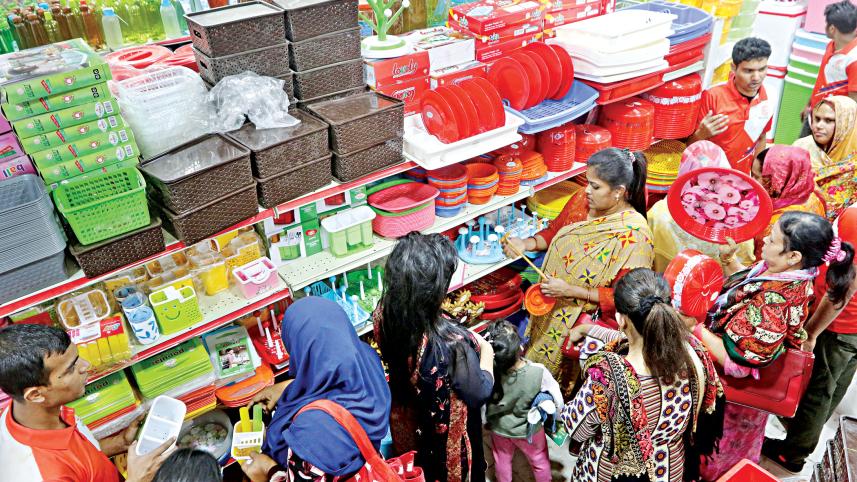Taskforce needed to realise plastic industry’s potential

The government could form a taskforce to identify the promising plastic sector's challenges and explore its potentials conforming to environmental standards, suggested Ahmad Kaikaus, principal secretary to the prime minister, yesterday.
"I want to have a taskforce in the plastic sector involving the government officials, private sector people and business chambers like the Federation of Bangladesh Chambers of Commerce and Industry (FBCCI) for realising the potential," he said.
Kaikaus also suggested setting up an accreditation body of international standard to test and provide certification to locally produced plastic goods.
Currently local manufacturers have to spend handsome amounts of money to avail such conformation assessments from laboratories abroad, including Singapore, to export plastic goods, he pointed out.
If necessary, such testing grounds can be formed under public-private partnership models, he said.
This is to augment the country's export earnings from plastic goods by tenfold the current amount and grab a bigger share of the $721 billion-worth global market, Kaikaus also said.
He was addressing a virtual discussion on "Sustainable Export Growth in Post LDC World: Strategies for the Plastic Sector" organised by the Dhaka Chamber of Commerce and Industry (DCCI).
Regarding the government's preparations to face the challenges past the least developed country (LDC) status shift, he said strategies were being chalked out by some high-powered committees formed under the prime minister's office.
Kaikaus said the papers were ready and the government was also trying to sign free trade agreements (FTAs) with some major trading partners for the continuation of the country's preferential trade regime past the status graduation.
"We are getting prepared. You do not need to be worried," he said.
FBCCI President Md Jashim Uddin said local manufacturers used to enjoy zero-duty benefit on plastic goods export to the US before the GSP was suspended for Bangladesh in 2013.
While the government has been providing a 10 per cent incentive on plastic goods export in the absence of the facility, a 27 per cent import duty has to be paid on raw materials, he said.
So, out of a total of 5,000 plastic factories, most of the small and medium ones are running with difficulty, he said.
The government should allow platforms representing plastic goods manufacturers and exporters to issue Utilisation Declaration (UD) certificates just as it is in the garment sector, Jashim also said.
Export of plastic and plastic goods currently amount to nearly $130 million but if all forms of plastic are taken into account, including those in the form of accessories of other exportable goods, the shipments are worth over $1 billion, said the FBCCI president.
Ahsan Khan Chowdhury, chairman and managing director of Pran-RFL Group, said recycling of plastic goods was a major challenge as only 20 per cent of the local plastic waste can be recycled. He said if doing business in Bangladesh could be made easier, the absence of the GSP benefit would not turn out to be a major challenge in the post-LDC status graduation period.
DCCI President Rizwan Rahman said of the 5,000 plastic producing companies, some 93 per cent were small and medium enterprises.
The plastic sector's contribution to the GDP is 0.33 per cent and currently it employs some 1.5 million people, he said.
In a keynote presentation, Shamim Ahmed, president of the Bangladesh Plastic Goods Manufacturers and Exporters Association, said some 3,000 factories were in Dhaka, 1,000 in Narayanganj and the rest across the country.
The absence of testing and certification laboratories of global standard, a central bonded warehouse, waste management and skilled manpower alongside a lack of access to finance are major challenges for the sector, he said.



 For all latest news, follow The Daily Star's Google News channel.
For all latest news, follow The Daily Star's Google News channel.
Comments